January to April 2020
Executive Director’s Message
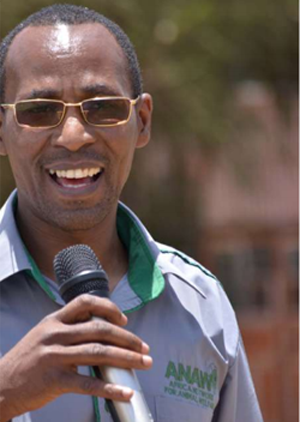
Greetings to ANAW Friends and Partners!
We continue to stand together with the world, as we all join hands to prevent further spread of the COVID-19 globally. Cognizance of the unprecedented times we are living in, ANAW has adopted the global practice of the moment – working from home and taking measures to protect ourselves and those around us.
At ANAW, we are aware of the reported cases of animals that have been infected with the novel virus and how they have been handled and treated, for that touches the very core for which we exist – to promote humane treatment of all animals. Our veterinary doctors are alert to offer any help in case any animal is reported to be exhibiting COVID-19 symptoms within our reach. Indeed, our head veterinary officer, Dr. Dennis Bahati recently was exclusively interviewed by a local daily to give an update of not only Kenya’s capacity to combat the virus in relation to animals but also global preparedness to handle the virus if it continued to soar. Please be keen to read that interview in this quarterly report.
Despite this dampening moment occasioned by COVID-19 worldwide, and seemingly dominating the landscape, we at ANAW have not wavered even under the circumstances, in our protection and care of Africa’s animals. This edition takes you through the outcome of ongoing projects that ensure good animal care, efficient capacity building and education and peaceful human-animal co-existence.
In joining the hands with wildlife conservationists across the globe to protect the lives of fast declining species, ANAW continued in its campaign to end bush meat for consumption and commercial trade by conducting routine de-snaring and rescue operations as you will read in this brief report.
In celebration of our wildlife we care so much about, ANAW was keen to mobilize hundreds of animal enthusiasts and conservationists in commemorating this year’s World Wildlife Day.
Care and co-existence are key as we work and live closely with animals in the wild as well as in our homes, farms and bomas. Donkeys being crucial in running the homestead, should not be subjected to abuse, pain, or torture. Wanton donkey slaughter in the country has largely decimated the animals’ population. In a joint campaign led by ANAW and The Brooke East Africa, ANAW hosted a media workshop involving 25 journalists at the beginning of the year to sensitize the media in awareness creation and educating the masses on the plight of these donkeys. Read more on how the initiative bore fruit soon after, when the Cabinet Secretary of Agriculture and Livestock, Hon. Peter Munya, instituted a ban of donkey trade and slaughter in the country.
As we look out for animals, we find it important to meet the needs of human beings as well. Read through and learn about ANAW’s program to educate the youth and meet their need to ensure a good environment for learning. Studies have revealed that rural towns bordering wildlife protected areas also pose a threat to wild animals through hunting for bush meat and charcoal burning. In engaging in these activities, diseases such as rabies are easily transmitted from animals to humans. A rural community in Samburu was glad to have the threat of Rabies done away with in a vaccination campaign in Meibae Community Conservancy. See the report.
I ask you to spare a few minutes and read through what ANAW has been able to achieve in these four months of the year despite the prevailing Covid-19 situation.
We would also appreciate your feedback which will go a long way in helping us do more in safeguarding Africa’s animal welfare.
Sincerely,
Josphat Ngonyo
|
Four Zebras Given a Chance to Live Again in Machakos and Nakuru Counties
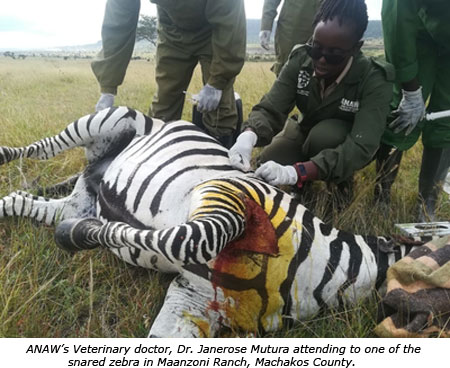
ANAW's Wildlife Rescue Team was on standby when a call came through from Maanzoni Ranch in Machakos County, some 67 kilometers east of Nairobi Capital, on January 27, 2020. Njeru Njiru, ANAW’s focal point, who guards the expansive ranch with the help of five other guardians, had no good news. He was inviting the team to offer remedy to a female zebra that they had spotted with an open wound on the right forelimb, arising from a suspected malicious attack either with a machete or poisoned arrow. When the team arrived at the ranch 52 minutes later, they confirmed Njeru’s call.
The zebra was lying alone under an isolated acacia shrub and seemed to be writhing in excruciating pain. With the help of Kenya Wildlife Service (KWS) veterinarian Dr. Ephantus Ndambiri, the team administered proper wound management and accompanying medication to the ailing wild animal. His face beaming with joy, Njeru said to ANAW’s team, “Oh, thank God, you came, otherwise this zebra would have most likely ended up in a poacher’s plate…” They all watched the zebra shamble away to join the rest of her fold.
Undeterred, on February 13, 2020 the team swiftly responded to a more serious emergency call in Soysambu Conservancy situated in Nakuru County and Kenya’s central Rift Valley approximately 130kms northwest of Nairobi. The conservancy’s head of patrols had sighted three zebras limping and dragging wire snares. The first zebra, a male had a swollen left front foot; the second also a male had a snare embedded on its rear left foot while the third, a female had a neck snare. All the three zebras were luckily darted, treated and released back to the wild.
The four zebras treated were lucky enough to have leaped to join their fold in the respective ranches. Many of these wild animals are not as lucky; as poachers trap them using wire snares and skin them for commercial purposes or to feed their families. ANAW continues to put more emphasis on community awareness on the benefits of co-existing with these wildlife species and conserving them for posterity.
|
World Wildlife Day Celebrated in Style
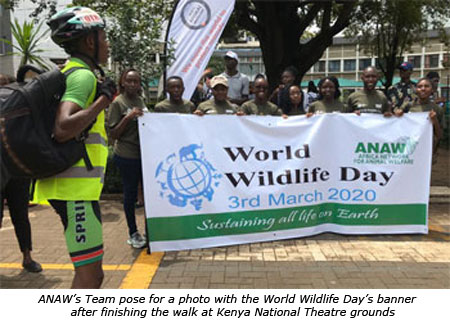
Lines of hundreds of animal enthusiasts and conservationists, holding banners and lifting placards stretched from Uhuru Highway and snaked through University Way ending at the Kenya National Theatre in the capital - Nairobi, in a peaceful march to celebrate this year’s World Wildlife Day. The annual event normally celebrated on March 3, saw ANAW in collaboration with World Animal Protection marshal wildlife fans and conservationists in commemorating World Wildlife Day under the theme, "Sustaining All Life on Earth".
Speaking at the event, ANAW’s Chief Operations Director, Kahindi Lekalhaile reminded the enthusiastic celebrants, “We are protecting wildlife not because the world is asking us to, but because those are our values and it is the attitude we need.”.
This day accords all an opportunity to celebrate the many beautiful and varied forms of wild fauna and flora and to raise awareness of the multitude of benefits that their conservation provides to people. Moreover, this special day serves a reminder to all, of the urgent need to step up the fight against wildlife crime and human-induced reduction of species, which have wide-ranging economic, environmental, and social impacts.
|
Kenya Declares Slaughter and Trade of Donkeys Illegal
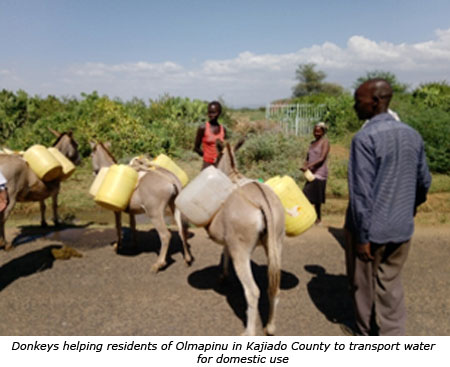
Ululations of joy, especially by the donkey reliant communities rent the air across the country, on February 24, 2020 as Kenya’s Minister for Agriculture, Livestock and Fisheries, Hon. Peter Munya announced that the government was banning donkey trade and subsequently giving the proprietors of the existing four donkey abattoirs (Goldox Kenya Ltd, in Baringo County, Star Brilliant, in Nakuru County, Zilzha Ltd, in Turkana County and Fuhai Trading Company in Machakos County) a month’s time to wind up donkey business in the country.
In December 22, 2019, a special report dubbed, #HideousBurden aired on NTV Kenya, a leading national and regional broadcaster. ANAW and Brooke East Africa had partnered with the giant media house, to investigate the nature, frequency and the extent of illegal cross-border movement and trade of donkeys across the Kenya-Tanzania border and its consequential economic effects on communities that rely on the animal for their livelihoods.
When it aired, a plethora of feedback from Kenyans and Tanzanians who watched, in utter shock understood how cartels and unscrupulous businessmen were selfishly benefiting from the illegal trade and the suffering meted on communities through theft of their donkeys, to supply the aforementioned four slaughterhouses. It was after this special report and other media reports from ANAW partners that persuaded the Kenyan government to make the landmark pronouncement. The Cabinet Secretary has since published the ban in Kenya Gazette Notice to make it a government directive.
|
Waatha Youth Set to Benefit from ACEF Program
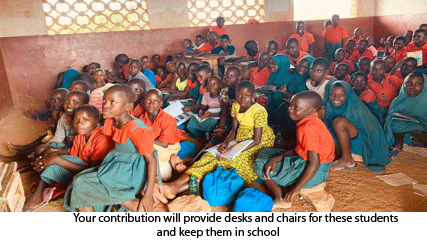
While wildlife loss is estimated at 60% globally, 59% in Africa and 68% in Kenya, no poaching takes place anywhere without the knowledge of someone in the communities living in or neighboring wildlife areas. Furthermore, these communities living near protected areas such as the Waatha of Tsavo National Park, rely on wildlife products such as bush meat for their livelihood. What if these communities were empowered in education and ultimately get employment for alternative income? ANAW opines that this strategy would see decreased poaching and increase for wildlife care.
It is this spirit that inspired ANAW, in February to start putting together a database of primary and high school leavers as well as youth dropouts from the Waatha community in Taita Taveta County, for them to benefit from the recently launched, ‘Africa Conservation Education Fund’ (ACEF) program. The database is intended to help the program come up with different projects that are suitable for each cadre.
Moreover, the ACEF program seeks to pay for direct and indirect learning costs for children from poor families living within the Tsavo ecosystem in the county. It also seeks to provide desks, chairs, school uniform and books for 80 primary school pupils and transport for 25 younger school age children from the marginalized community. Furthermore, this noble initiative will also support vocational training for 447 unemployed youth, who apart from hunting for bush-meat and charcoal burning, have limited options for earning a means of livelihood.
ANAW is making a passionate call on partners and friends to join the movement and make the ACEF program a reality thus improving the lives of the disadvantaged Taita Taveta, Kwale and Kilifi counties youth.
|
912 Animals Vaccinated as 27 Others Sterilized in Samburu County
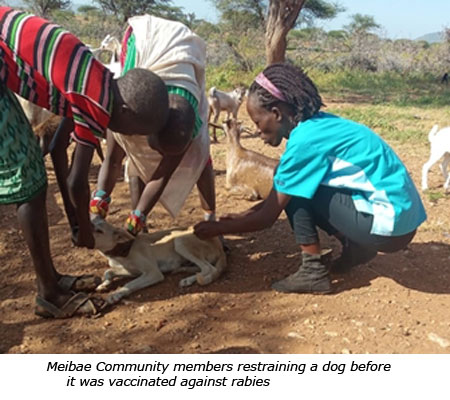
On January 17-19, 2020, ANAW in collaboration with Action for Cheetahs in Kenya, Ewaso Lions, Samburu County Government, TNR Trust and Kenya Veterinary Association (KVA) held a successful anti-rabies vaccination and sterilization campaign in Meibae Community Conservancy, Samburu County. A team of 15 veterinarians and 12 assistants set out on a three-day vaccination drive in Meibae Community Conservancy to inoculate dogs and cats. A total of 912 animals (759 dogs, 152 cats, 1 donkey) were vaccinated and 27 dogs (9 spay, 18 neuters) sterilized.
The vaccination campaign was anchored on the Strategic Plan for the Elimination of Human Rabies in Kenya 2014 – 2030. This strategy highlights Kenya’s plan and focus for the elimination of human dog-mediated rabies, an invariably fatal disease in humans, livestock, and other mammals by 2030. The viral condition kills an estimated 2,000 people in Kenya every year, and around 60,000 people annually worldwide; that is nearly one death, every nine minutes. Most affected are countries in Africa and Asia. Depressingly, almost half of the victims are children under the age of 15.
|
25 Journalists from Kenya and Tanzania Sensitized on the Plight of Donkeys
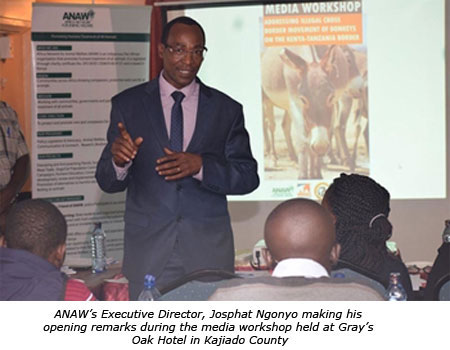
ANAW in partnership with the County Government of Kajiado, Brooke East Africa and Arusha Society for the Protection of Animals (ASPA) hosted a two-day media workshop at the Gray’s Oak Hotel in Kitengela, Kajiado County on January 24, 2020. The workshop which attracted 25 journalists from Kenya and Tanzania were drawn from different media facets - electronic, print and web.
The main objective of the media workshop was to sensitize the media on the nature, and impacts of the cross-border movement and illegal trade of donkeys along the Kenya-Tanzania border, hence, seek for their partnership in informing the public on the trade’s negative ramifications on communities that depend on the animal for their livelihood sustenance. One of the key outcomes of the workshop was to have an invigorated reporting of the plight of donkeys in the media. Here are some of the outcomes of the successful media workshop.
1. ANAW’s Kahindi Lekalhaile BBC Interview on the closure of donkey trade and abattoirs - https://www.youtube.com/watch?v=4LB6pjqheG0 .
2. KBC TV Interview with Josiah Ojwang on Donkey Issue - https://www.youtube.com/watch?v=8_-ere-MD7A&t=4s .
3. Metropol TV’s interview with Kahindi Lekalhaile on: Are Donkeys Kenya’s Next Endangered Species? https://www.youtube.com/watch?v=jme3eIVgzd8 .
4. The Star Newspaper article on Donkey Issue - https://www.the-star.co.ke/news/2020-01-24-donkeys-will-be-extinct-in-kenya-by-2023-anaw .
5. The Standard Newspaper on Donkey Issue - https://www.standardmedia.co.ke/article/2001358174/steep-fall-in-donkey-numbers-in-10-years .
6. ANAW mentioned by Daily Nation Newspaper – ‘Government bans slaughter of donkeys to end theft’ https://www.nation.co.ke/news/Munya-bans-slaughter-of-donkeys/1056-5470062-5qmour/index.html .
7. ANAW mentioned by The Standard Newspaper – ‘Donkey ban will cost us billions, traders say’ - https://www.standardmedia.co.ke/article/2001361867/donkey-ban-will-cost-us-billions-traders-say .
8. ANAW mentioned by BBC - Serikali ya Kenya imepiga marufuku uchinjwaji wa punda, je ni kwanini? https://www.bbc.com/swahili/habari-51624553 .
|
Kasighau Ranch Wildlife, Not Thirsty!
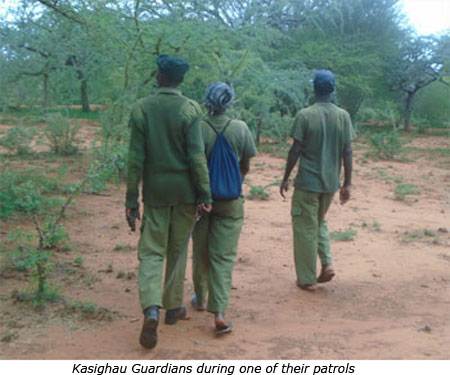
ANAW’s Wildlife Guardians in Kasighau continued to patrol the expansive ranch in their efforts to ensure that the welfare of the wildlife was safeguarded. In their more than 100 patrols within the first quarter of the year 2020, they have established that the wildlife species roaming the ranch have had enough water to drink as all the dams were almost always full of water; thanks to the continued rainfall that had been pounding the region since October last year. There was, however, an incident of bushmeat poaching in February. This was noted by the guardians who sighted blood marks within the precincts of the ranch and filed a report with Kenya Wildlife Service (KWS) for further investigation.
|
Is the World Unprepared for Coronavirus in Animals?
As the world is currently engaging in concerted efforts to combat Covid-19 which allegedly originated in Wuhan – China in early December 2019 and blistered its way around the globe. Over five million people have tested positive and over 350,000 lives lost globally due to the virus.
Cases of animals both domestic and wild infected with the novel virus have been reported and although, infectious disease experts and multiple international and domestic human and animal health organizations agree there is no evidence at this point to indicate that pets spread COVID-19 to other animals, including people, that assessment might require urgent review as human transmission of the virus continue to soar.
By February 2020, there was evidence that animals were being infected with SARS-CoV-2. Three dogs (North Carolina, Hong Kong [2]), five cats (Belgium, Hong Kong, New York [2], Spain), five tigers (New York City), and three lions (New York City) have reportedly been infected with SARS-CoV-2, as of May 8, 2020.
According ANAW’s Programs Manager in-charge of Animal Care, Dr. Dennis Bahati who gave an exclusive interview to Kenya’s People Daily Newspaper recently, hinted that with the vast spread of the virus in humans, the potential for spread in both domestic animals and wildlife was impending. “The already reported cases give an indication of how rapid the virus can transmit among domestic and wildlife population in captivity and in the wild if the virus were to enter their population. Imminent interactions among humans, livestock and wildlife will likely result in the transmission of the virus to wildlife if measures are not put in place.” He said.
On the capacity to combat the virus if more animals were affected globally, Dr. Bahati opined, “Considering this is a novel infection whose epidemiology, pathogenesis, pathology and mode of treatment (since no known human vaccine has been developed to build natural immunity and hence counter the infection) are still a mystery, the situation may prove catastrophic if a vast population of animals, both domestic and wildlife gets infected.”.
On handling of pets at home and animals in zoos during this period, it is important for the owners to wash their hands before and after handling them and their food, as well as practising good animal and pet hygiene.
Moreover, pet owners should wear protective facial masks when in contact with their pets and help reduce interaction with other pets that may be carriers of the virus. They should also consult their veterinarian if their pets show symptoms consistent with Covid -19.
“However, social distancing between pets and owners may prove detrimental to pets, resulting in lack of stimulation and subsequent stereotypic behaviour.” Dr. Bahati cautioned.
|
ANAW Assesses the Welfare of Reptiles Within National Museums of Kenya
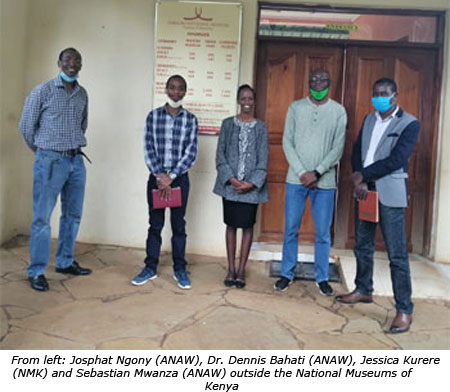
On 28th April this year, and amid the prevailing Covid-19 pandemic, ANAW’s Executive Director, Josphat Ngonyo; Senior Communications Officer, Sebastian Mwanza and the Program’s Manager (Animal Care), Dr. Dennis Bahati made a courtesy visit to the National Museums of Kenya’s (NMK) Snake Park to assess a possible collaboration in addressing some of the animal welfare issues highlighted in the past within the facility. The team was taken on a tour of the reptiles’ park by the facility’s curator, Albert Otieno and noted that the animals under their captive environment were doing well save for two snakes’ mouth infections that were to be attended to.
Through ANAW’s in-depth discussions with NMK during the guided tour, it was also noted that there was a need of enhancing reptile enrichment of their cages or rooms, to evade stereotypic and abnormal behavior. This would maximize psychological welfare and ensure that their well-being is upheld.
Importantly, ANAW identified a gap within the facility; lack of a resident veterinary doctor who would handle full time animal care and welfare of the reptiles caged and agreed to continue engaging with NMK to jointly find a long lasting solution – procure a resident veterinary doctor.
In his vote of thanks, Mr. Otieno said, “Thank you so much ANAW for paying us a visit to find out how we are doing. And yes, we all agree on the importance of having a resident veterinary doctor in this facility who would be on standby to attend to the reptiles whenever they need help…” He further went on to make an appeal, “Lack of sufficient resources has been our greatest impediment to procuring an in-house veterinary doctor. We would appreciate if you would help us get one for the sake of the animals’ welfare.” .
|

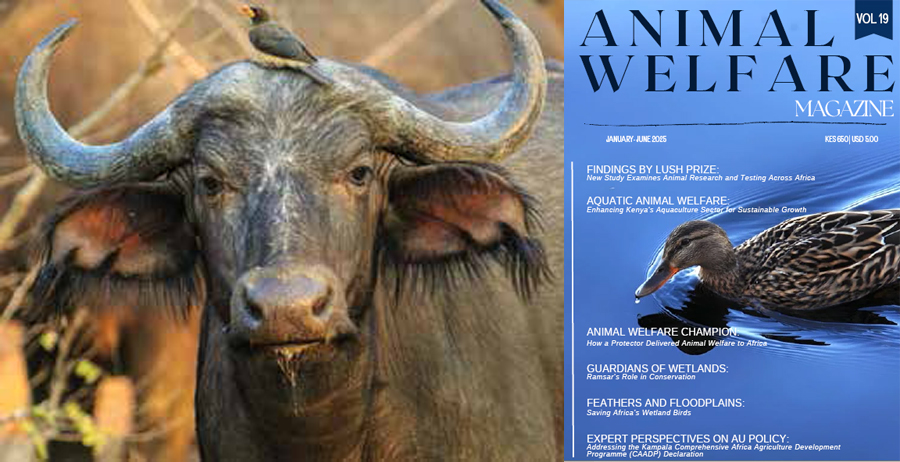
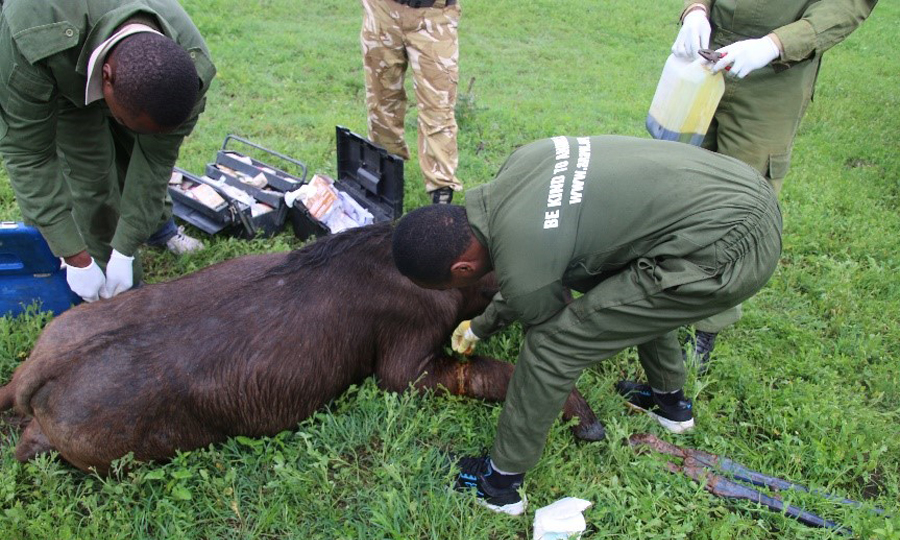
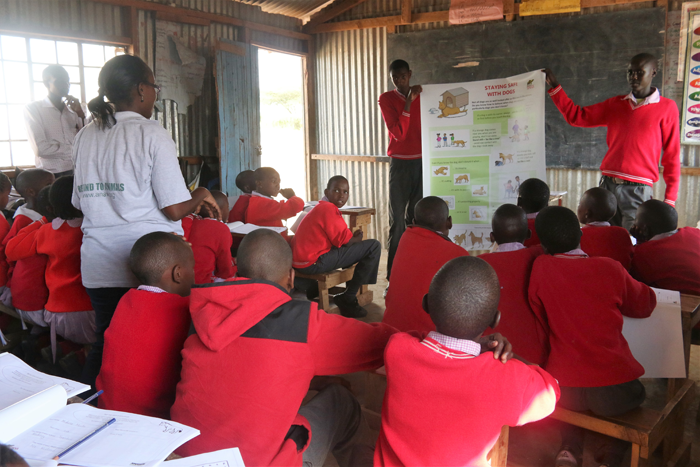
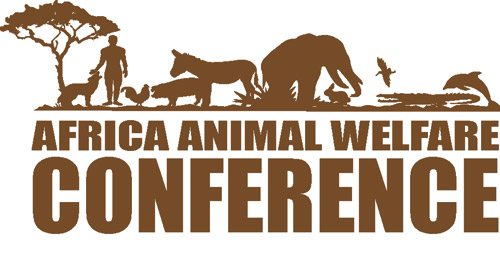
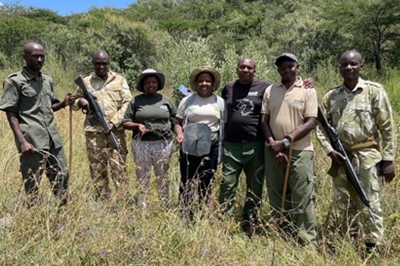
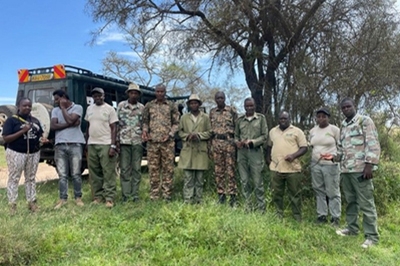
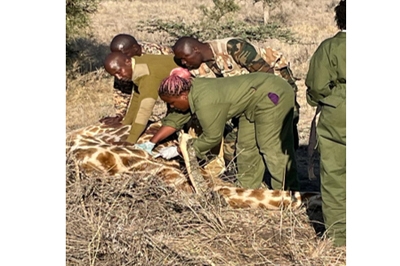
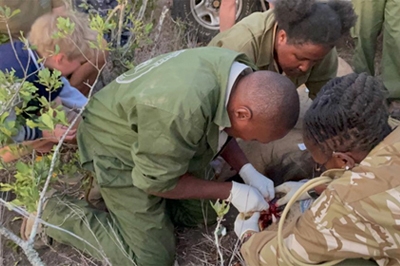
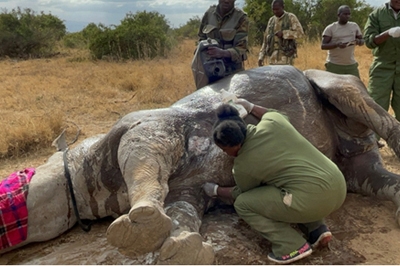
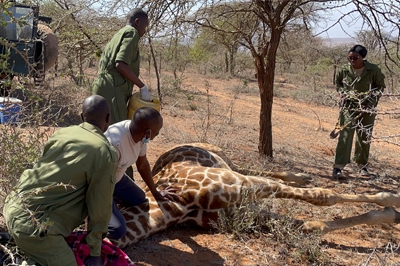
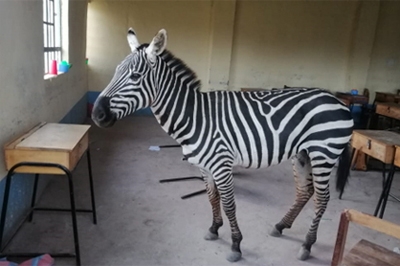
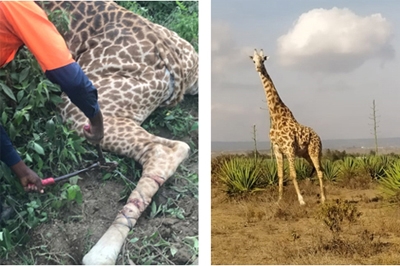
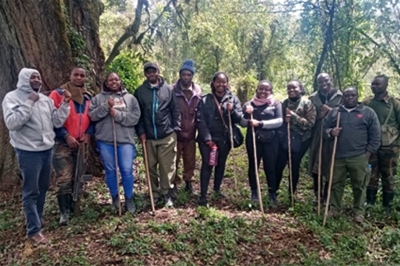
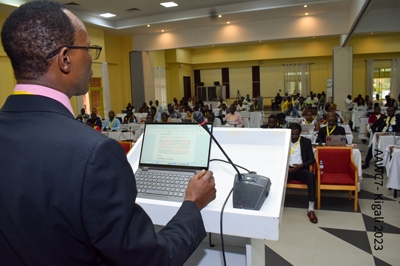
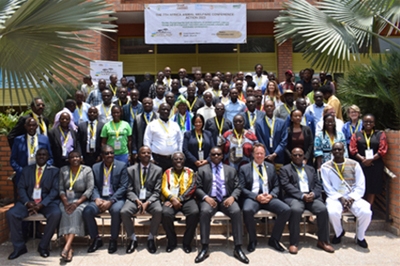
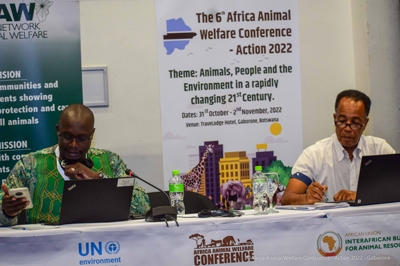
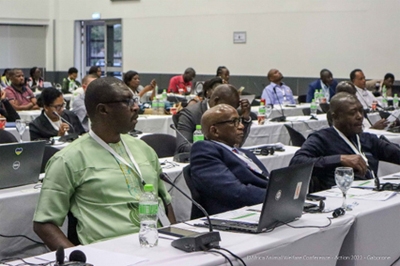
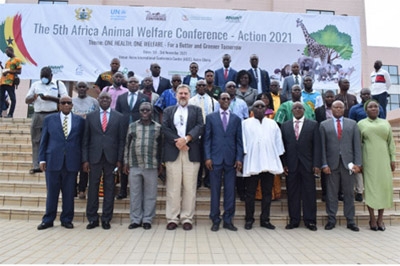
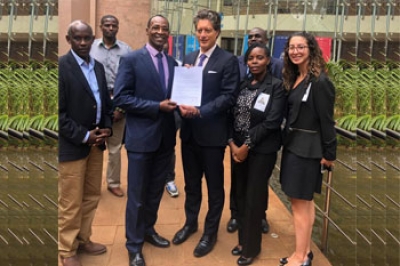
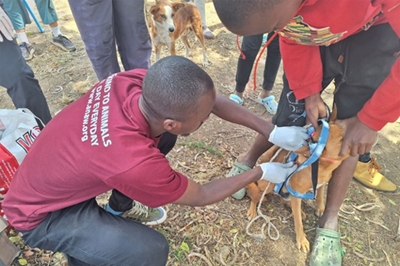
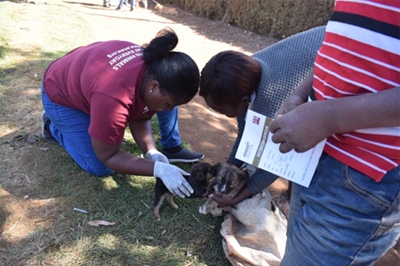
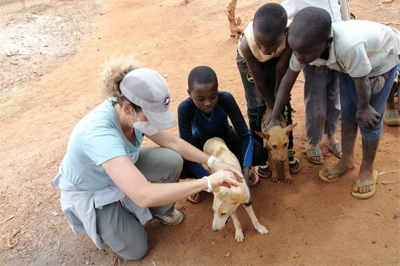
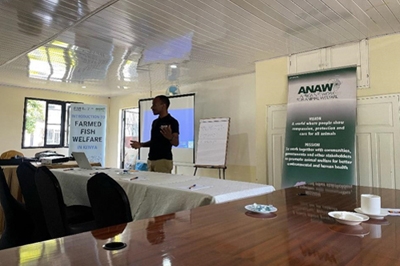
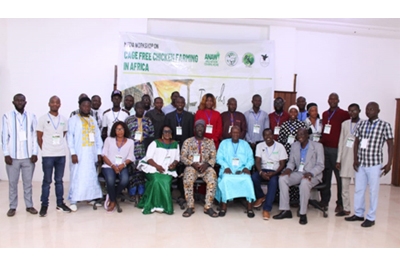
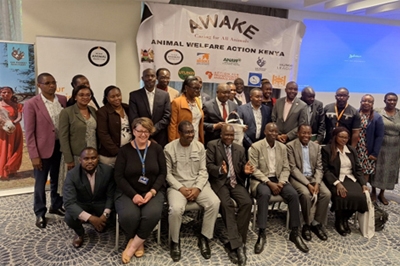
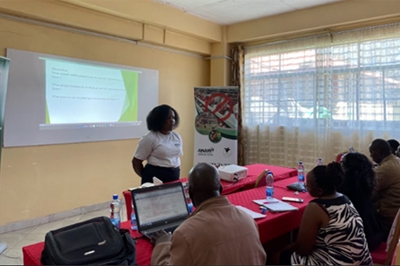
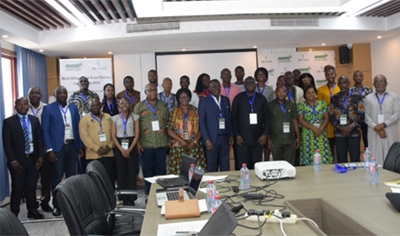
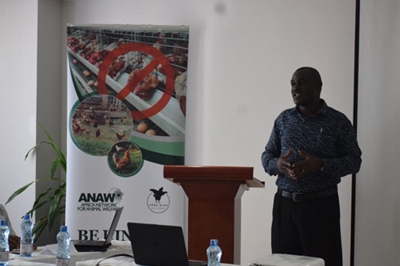
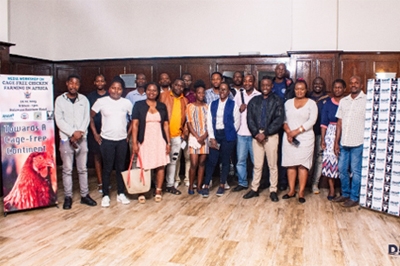
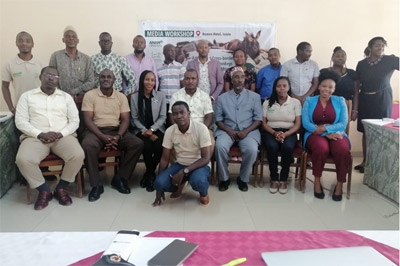
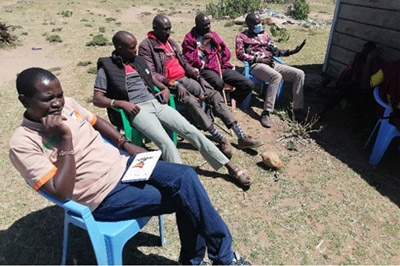
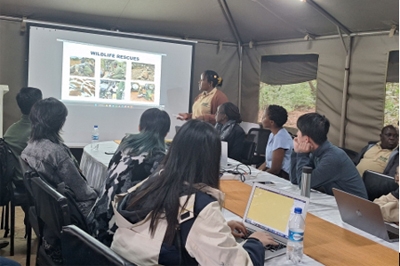
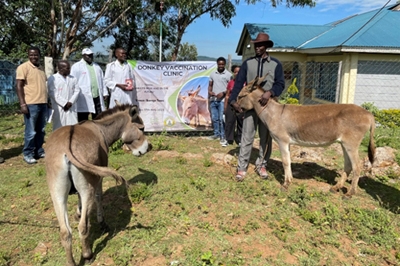
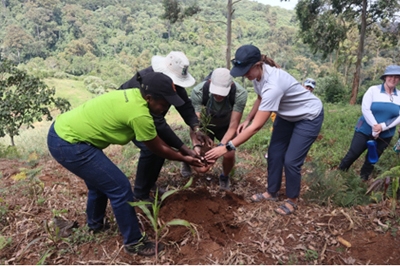
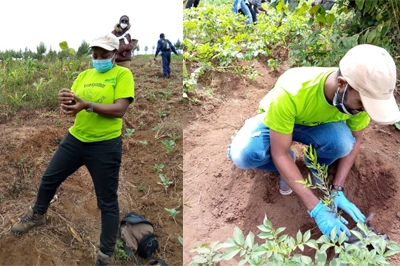
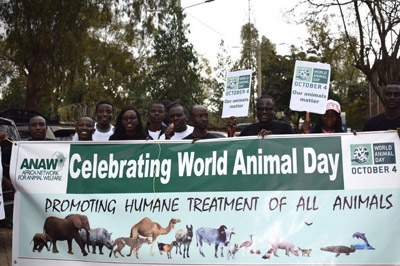
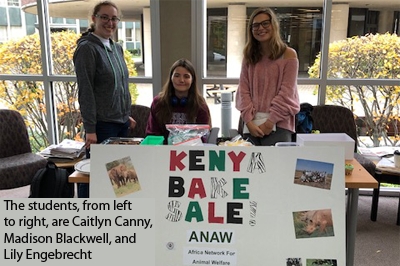
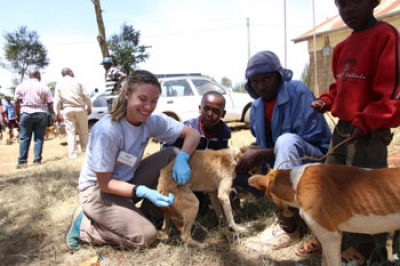
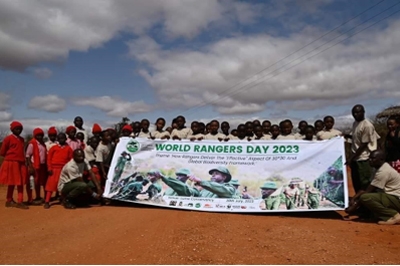
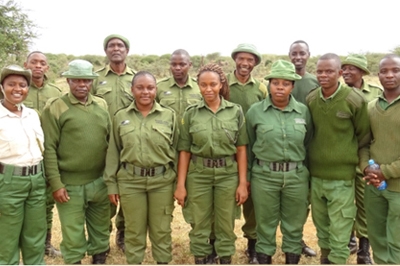
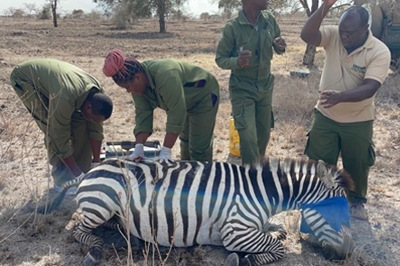
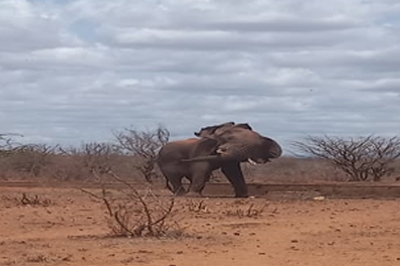
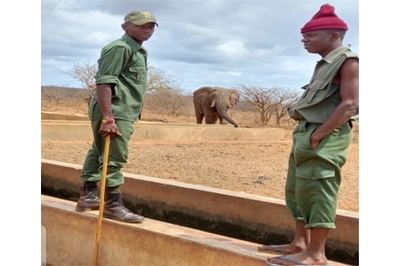
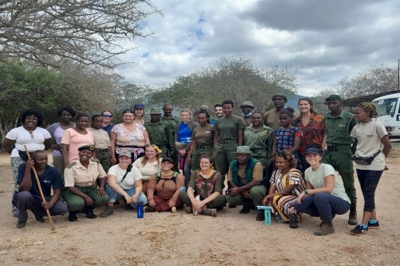
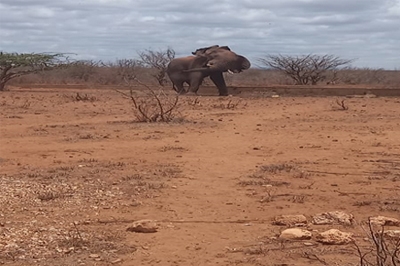
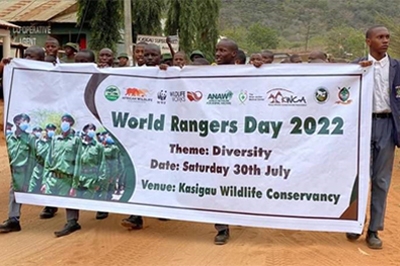
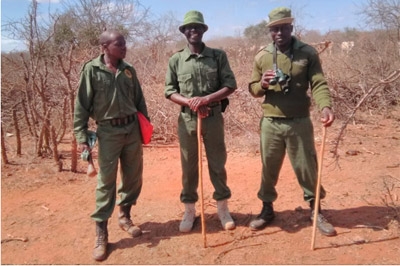
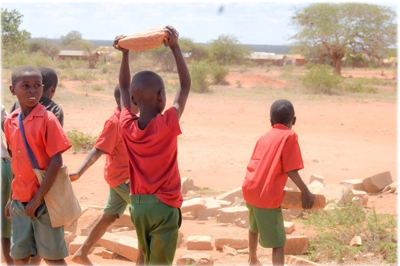
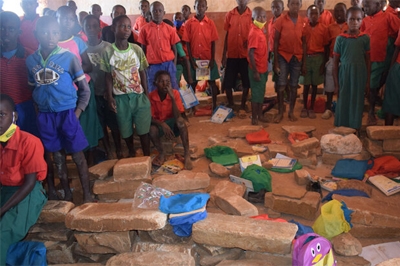
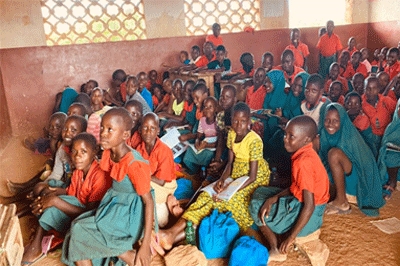
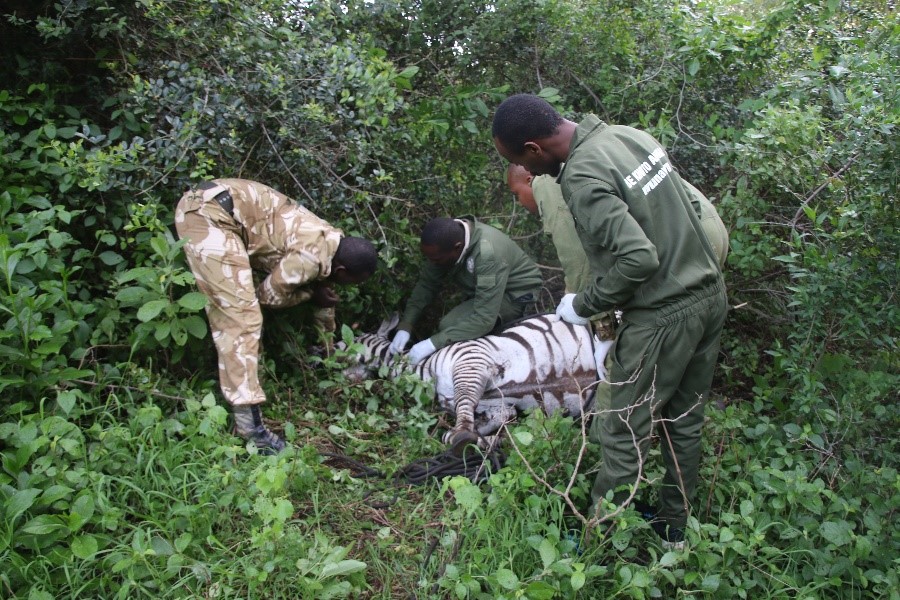
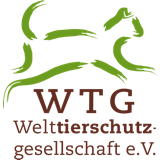
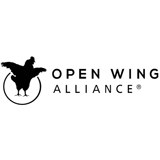
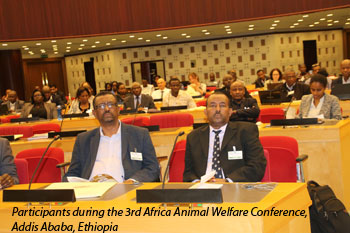 The Third Africa Animal Welfare Conference, from September 2 to 4, 2019 at the United Nations Economic Commission for Africa (UNECA) Conference Center in Addis Ababa, Ethiopia. The successful conference was a collaboration between Africa Network for Animal Welfare, UN Environment and The Government of Ethiopia. The theme of the third conference was Animals, Environment and Sustainable Development in 21st Century Africa: An Interlinked Approach, with discussions revolving around the connection between animal welfare, the environment and the Sustainable Development Goals (SDGs).
The Third Africa Animal Welfare Conference, from September 2 to 4, 2019 at the United Nations Economic Commission for Africa (UNECA) Conference Center in Addis Ababa, Ethiopia. The successful conference was a collaboration between Africa Network for Animal Welfare, UN Environment and The Government of Ethiopia. The theme of the third conference was Animals, Environment and Sustainable Development in 21st Century Africa: An Interlinked Approach, with discussions revolving around the connection between animal welfare, the environment and the Sustainable Development Goals (SDGs).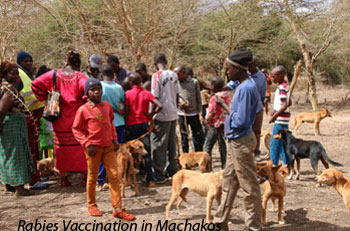 Africa Network for Animal Welfare (ANAW) has been partnering with The County Government of Machakos and Voi Sub County to help curb the rabies pandemic through regular mass dog vaccination. From August 2 – 9, 2019, ANAW hosted a team of 14 members in the second edition of Africa Animal Welfare Adventure Trip consisting of veterinary doctors, and veterinary technicians from the US, who came to support ANAW’s anti-rabies initiative in the aforesaid two counties. Led by Dr. Julie Kelly, the team’s aim of the trip was to address the rabies menace through free mass anti-rabies vaccination, outreach and responsible pet ownership among the two counties’ residents.
Africa Network for Animal Welfare (ANAW) has been partnering with The County Government of Machakos and Voi Sub County to help curb the rabies pandemic through regular mass dog vaccination. From August 2 – 9, 2019, ANAW hosted a team of 14 members in the second edition of Africa Animal Welfare Adventure Trip consisting of veterinary doctors, and veterinary technicians from the US, who came to support ANAW’s anti-rabies initiative in the aforesaid two counties. Led by Dr. Julie Kelly, the team’s aim of the trip was to address the rabies menace through free mass anti-rabies vaccination, outreach and responsible pet ownership among the two counties’ residents. Throughout the quarter, ANAW’s work on hands-on care and protection of animals has involved desnaring and emergency response for animals caught up in various disasters. The team reduces the suffering and pain by treating the relevant animals as well as training owners on how to take proper care of the animals in question.
Throughout the quarter, ANAW’s work on hands-on care and protection of animals has involved desnaring and emergency response for animals caught up in various disasters. The team reduces the suffering and pain by treating the relevant animals as well as training owners on how to take proper care of the animals in question.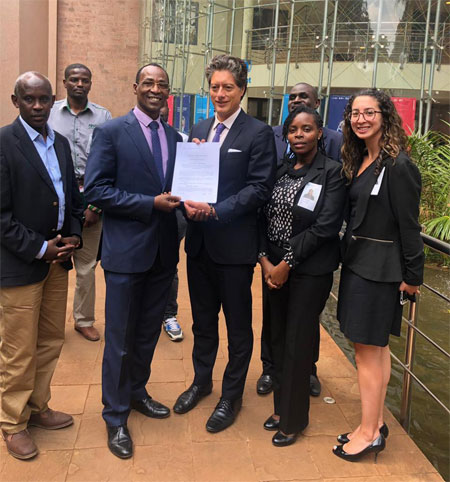 After a successful third Africa Africa Animal Welfare Conference, ANAW is glad to announce that it has extended their collaboration with the United Nations Environment for another three years. This cooperation which has mutually served both entities positively will continue to allow both organizations contribute to improved coordination and enhance collaboration with regard to conservation, support of nature and natural resources, addressing climate change, combating pollution among other issues.
After a successful third Africa Africa Animal Welfare Conference, ANAW is glad to announce that it has extended their collaboration with the United Nations Environment for another three years. This cooperation which has mutually served both entities positively will continue to allow both organizations contribute to improved coordination and enhance collaboration with regard to conservation, support of nature and natural resources, addressing climate change, combating pollution among other issues.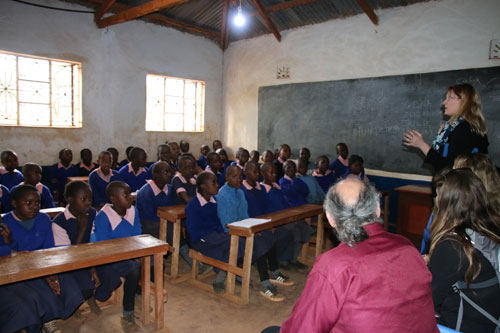 Animal Welfare Clubs are a platform for sharing and discussing animal welfare which is a ‘values-based’ subject that can play a significant role in shaping young people’s personal, social and moral perspectives.
Animal Welfare Clubs are a platform for sharing and discussing animal welfare which is a ‘values-based’ subject that can play a significant role in shaping young people’s personal, social and moral perspectives.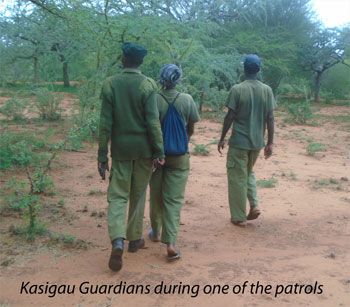 To strengthen the work in Kasigau Conservancy, ANAW recruited three new guardians in addition to the current seven. This will boost wildlife monitoring and patrols in the conservancy. ANAW has been supporting the Conservancy since 2015. The ranch is a critical dispersal area for Tsavo East and Tsavo West National Parks.
To strengthen the work in Kasigau Conservancy, ANAW recruited three new guardians in addition to the current seven. This will boost wildlife monitoring and patrols in the conservancy. ANAW has been supporting the Conservancy since 2015. The ranch is a critical dispersal area for Tsavo East and Tsavo West National Parks.








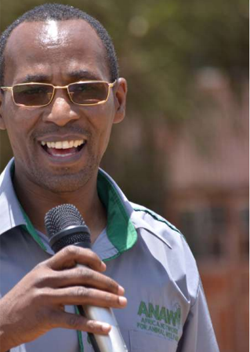 Dear Partner,
Dear Partner,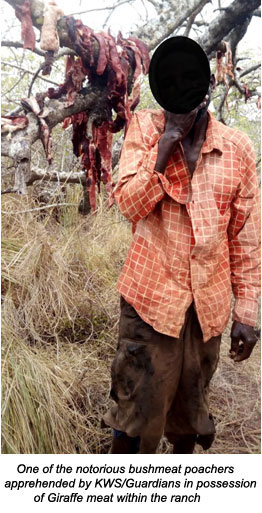 The months of May and June have been extremely busy for ANAW Wildlife Scouts as they conducted 63-day and 2-night patrols within the 52,000-acre Kasighau Ranch. With help from local informants, the wildlife guardians received intelligence reports of more than six incidences relating to bushmeat hunting within the ranch, for the last two months.
The months of May and June have been extremely busy for ANAW Wildlife Scouts as they conducted 63-day and 2-night patrols within the 52,000-acre Kasighau Ranch. With help from local informants, the wildlife guardians received intelligence reports of more than six incidences relating to bushmeat hunting within the ranch, for the last two months.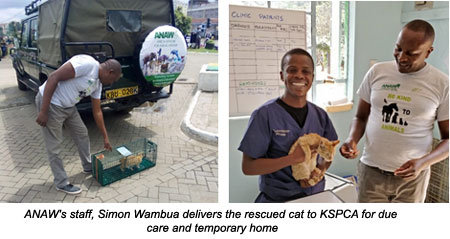
 ANAW’s Turtle Rescue Program team in Kenya’s Diani Beach on the shores of Indian Ocean have been relatively busy for the last two months as turtles’ egg-laying season gained momentum. During the two-month period, the team recorded a total of 45 new nests. 18 of the nests were original while the other 27 were relocated, hence recording a total of 3,314 hatchlings.
ANAW’s Turtle Rescue Program team in Kenya’s Diani Beach on the shores of Indian Ocean have been relatively busy for the last two months as turtles’ egg-laying season gained momentum. During the two-month period, the team recorded a total of 45 new nests. 18 of the nests were original while the other 27 were relocated, hence recording a total of 3,314 hatchlings.
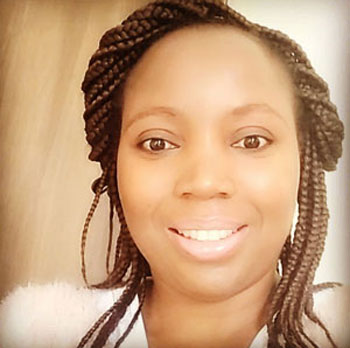 1. What is your current position?
1. What is your current position?